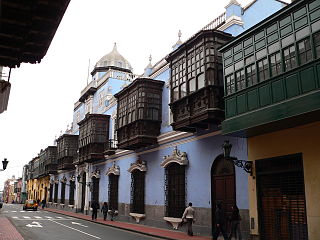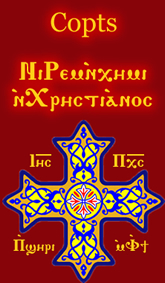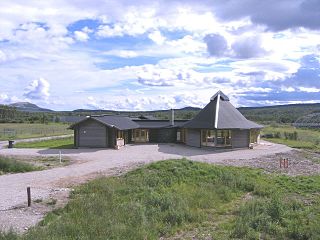 W
WThe Academia Colombiana de la Lengua is an association of academics and experts on the use of the Spanish language in Colombia. It is based in Bogotá, Colombia's capital, and is a member of the Association of Spanish Language Academies.
 W
WThe Class of Letters of the Lisbon Academy of Sciences holds an official consultative role on the Portuguese language in Portugal.
 W
WThe Peruvian Academy of Language is an association of academics and experts on the use of the Spanish language in Peru. It was founded in Lima on May 5, 1887. Its first elected president was Francisco García Calderón. The second president was Ricardo Palma. It is a member of the Association of Spanish Language Academies.
 W
WThe Academia Venezolana de la Lengua is an association of academics and experts on Venezuelan Spanish, the variant of the Spanish language in Venezuela. It was founded in Caracas on July 26, 1883. It is a member of the Association of Spanish Language Academies.
 W
WThe Academy of Sciences of Afghanistan (ASA) is the official government agency of Afghanistan that regulates the Pashto and Dari Persian languages spoken in Afghanistan. It also works with Tajikistan and Iran's official government agencies to regulate literature.
 W
WThe Academy of Sciences of Moldova, established in 1946, is the main scientific organization of Moldova and coordinates research in all areas of science and technology. Ion Tighineanu has been the head of the Academy of Sciences since April 9, 2019.
 W
WThe Akademi Kreyòl Ayisyen, known in French as the Académie du Créole Haïtien and in English as the Haitian Creole Academy, is the language regulator of Haitian Creole. It is composed of up to 55 scholars under the leadership of Pierre-André Pierre.
 W
WThe Institute of the Mirandese Language is the institution responsible for the representation, research, promotion, codification and distribution of the Mirandese language. Its headquarters is in the northern Portuguese town of Miranda do Douro. It arose from the need for the existence of an entity to protect and promote the use of Mirandese. The decision to form the institute came about from a meeting in September 2000, in Miranda do Douro, where a number of persons interested in the language met, as also the resolution to establish it under the European Charter for Regional or Minority Languages.
 W
WThe Association for Logic, Language and Information (FoLLI) is an international, especially European, learned society. It was founded in 1991 "to advance the practicing of research and education on the interfaces between Logic, Linguistics, Computer Science and Cognitive Science and related disciplines." The academic journal Journal of Logic, Language and Information (JoLLI) is published under its auspices; it co-ordinates summer schools such as the European Summer School in Logic, Language and Information (ESSLLI), the North American Summer School in Logic, Language, and Information (NASSLLI), and the International Conference and Second East-Asian School on Logic, Language and Computation (EASLLC); and it awards the E. W. Beth Dissertation Prize to outstanding dissertations in the fields of Logic, Language, and Information.
 W
WThe Central Hindi Directorate, New Delhi is the directorate, under the Ministry of Education (India), responsible for promotion of Standard Hindi. It also regulates the use of Devanagari script and Hindi spelling in India. In keeping with the instructions of Article 351 of the Constitution of India, the Central Hindi Directorate of 1 March 1960 was established. There are four regional offices situated at Chennai, Hyderabad, Guwahati and Kolkata.
 W
WDhivehi Academy officially known as The Academy of the Dhivehi Language, established on 8 August 2011, is the national academy for promoting the Dhivehi language in the Maldives. The main office of the organization is located at Sosunge, a part of the campus of the Maldives National University, in Malé, the capital of the Maldives.
 W
WThe Dzongkha Development Commission (རྫོང་ཁ་གོང་འཕེལ་ལྷན་ཚོགས), also called the DDC, is the pre-eminent body on matters pertaining to the Dzongkha language. The DDC was officially established in 1986 by Jigme Singye Wangchuck, the fourth king of Bhutan, to preserve and promote the use of Dzongkha as the national language of Bhutan. The DDC offices are now located in the Kawajangtsa area of Thimphu, close to the National Library of Bhutan and the Ministry of Education.
 W
WThe Institute for the Languages of Finland is a governmental linguistic research institute of Finland geared at studies of Finnish, Swedish, the Sami languages, Romani language, and the Finnish Sign Language.
 W
WThe Institute of Coptic Studies was founded in 1954 by the Coptic Orthodox Church of Alexandria. It is based in Cairo.
 W
WInstitute of Philology of the Siberian Branch of the RAS is a research institute based in Akademgorodok of Novosibirsk, Russia.
 W
WThe Jordan Academy of Arabic is one of the Arabic language regulators based in Amman, Jordan. Besides the Jordan Academy of Arabic, there are 10 other Arabic language and literature regulators in the world. It has been set up to start by 1924, but could only be in real-life by 1976.
 W
WKainun institutti – kvensk institutt is a center for Kven culture and language. It is located in Børselv in Porsangi (Porsanger) municipality in Norway. It was opened in January 2007. The chair at the institute is Hilde Skanke. In total six people are employed at the institute. Funding is provided by the Norwegian government.
 W
WLACITO is a multidisciplinary research organisation, principally devoted to the study of cultures and languages of oral tradition.
 W
WThe Mandalay University of Foreign Languages [nàɪɰ̃ŋàɰ̃dʑá bàðà ʔətʰúbjṵ tɛʔkəθò (máɰ̃dəlé)]), located in Mandalay, is one of two specialized universities for the study of foreign languages in Myanmar. The university offers Master of Arts program, full-time four-year bachelor's degree programs run by Ministry of Education, and part-time diploma programs in the study of several Asian and European languages.
 W
WMango Languages is an American online language-learning website and mobile app based in Farmington Hills, Michigan for academic institutions, libraries, corporations, government agencies, and individuals.
 W
WThe Moscow Student Conference on Linguistics (MSCL) is an annual student linguistic conference, which started in 2006. It was first held at the Moscow State University, and since then it has grown to be one of the major conferences on formal linguistics in Russia. The aim of the conference is to give young researchers an opportunity to present their work, exchange ideas and receive feedback from more experienced colleagues.
 W
WThe Myanmar Language Commission is the pre-eminent government body on matters pertaining to the Burmese language. It is responsible for several projects including the Myanmar–English Dictionary (1993) and MLC Transcription System for Romanization of Burmese.
 W
WThe National Book Council is a Maltese public entity dedicated to the promotion of the book industry in Malta.
 W
WThe Phonetics Laboratory is the phonetics laboratory at the University of Oxford, England. It is located at 41 Wellington Square, Oxford.
 W
WPer Noste is a French association founded in 1960 under the name Per Nouste with the aim of supporting and promoting the Occitan language and civilization in Gascony. Its founding chairman is Roger Lapassade. Among the 26 founder members are Robert Darrigrand, Pierre Tucoo-Chala, and Xavier Ravier. Michel Grosclaude joined them in 1965. Since its very beginnings, the association has promoted the language teaching through the publication of handbooks.
 W
WThe Philological Society, or London Philological Society, is the oldest learned society in Great Britain dedicated to the study of language as well as a registered charity. The current Society was established in 1842 to "investigate and promote the study and knowledge of the structure, the affinities, and the history of languages". The society publishes a journal, the Transactions of the Philological Society, issued three times a year as well as a monographic series.
 W
WWorld Hindi Conference, in Hindi: Vishva Hindi Sammelan is a world conference on Hindi language. The conference consists of several Hindi scholars, writers and laureates from different parts of the world to contribute the language.